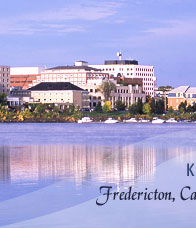Changes Coming to Parent and Grandparent Immigration?
09/26/2017
By: Kelly Toughill in Halifax
Thousands of families will soon get a second chance to bring parents and grandparents to Canada.
That’s the good news recently announced by Immigration, Refugees and Citizenship Canada.
The bad news is that there is no chance Canada will keep its promise to issue 10,000 permanent resident visas to extended family members in 2017.
Officials won’t even finish collecting the new applications until December and it will take months to process those applications after they arrive.
Problems with the parent and grandparent sponsorship program are a classic case of great intentions gone wrong. In this case, families who followed the rules were suddenly shut out of the system, and other families were given false hope that they could reunite with ailing relatives.
Prime Minister Justin Trudeau and his cabinet have changed Canada’s immigration system significantly in the last 16 months. They reversed a much-criticized law that allowed the government to strip people of their Canadian citizenship. They set up new programs to help businesses recruit tech workers and to support Francophone immigration outside Quebec. They made it easier for entrepreneurs to come to Canada, and eased rules for workers who want to move to struggling Atlantic Canada. They shortened the wait time to sponsor a spouse and made the forms easier to read and understand. They helped international students by setting up a new, speedy immigration program in Atlantic Canada, giving students extra points for Canadian degrees and making it easier for international students to become citizens after they get permanent resident status.
Those changes were greeted with relief and even gratitude across Canada.
Changes to the parent and grandparent program were supposed to be another feel-good tweak to the system. Instead, the changes angered the very consitutuency the government was trying to please.
Under the Conservative government, Ottawa set a quota each year for the number of Canadian families that could sponsor a parent or grandparent for permanent resident status. The Liberal government doubled the quota from 5,000 to 10,000, but initially kept the same process: applications opened in early January and closed when the quota was reached – always within days.
To win one of the coveted visas, most families hired experienced immigration lawyers or consultants and paid stiff fees for private couriers to wait in line outside the Mississauga processing centre the night before the program opened.
Just three weeks before the program was expected to open this year, the government announced it was scrapping the first-come, first-served system. Instead, then-Immigration Minister John McCallum invited families to fill out an online form and promised to hold a lottery to decide who could formally apply. He called the new process “more fair and transparent.”
The announcement came after thousands of families had already prepared applications that require medical exams, police certificates and expensive translations, not to mention lawyers’ fees. Many families wasted months of work and thousands of dollars on applications they would never get to file.
The larger problem, though, was the online form set up to register for the lottery; families could fill out the form without figuring out if they were actually eligible to sponsor a parent or grandparent.
Most know that only Canadian citizens and permanent residents can sponsor a parent or grandparent for permanent resident status. But many don’t know that you must be able to support that parent and that the only acceptable proof of your financial ability is past income tax forms. Many also didn’t realize that parents and grandparents must be healthy to immigrate to Canada.
When immigration lawyers and regulated consultants saw the online form, many immediately warned of coming pandemonium. Some dismissed those warnings as sour grapes, suggesting that lawyers were just mad that clients might be able to sponsor relatives without their high-priced help.
It turns out the lawyers were right.
Almost 100,000 families registered for the lottery, but only a fraction of the 10,000 that were invited to apply actually managed to do so.
Immigration consultants shared stories of clients showing up on their doorstep with expectations that Canada was going to immediately fly their relatives here because the family had “won the lottery.” Many had no idea they still had to pull together the complex and expensive application in 90 days. In June, an immigration official told a conference that only 700 of the 10,000 families had filed applications, and that 15 percent of those applications were incomplete.
Immigration, Refugees and Citizenship Canada still doesn’t know how many of the 10,000 families invited to apply will actually get to bring their relatives to Canada. A spokesperson said this week that 6,020 of the 10,000 families invited to apply last February actually filed applications. However, immigration officers still don’t know how many of those application are complete or valid. Those numbers are expected later this fall.
In the meantime, Ottawa has quietly launched a second lottery. The notice was posted Friday afternoon before Labour Day. The new invitations were sent out on Sept. 6. Families must finish the applications by Dec. 8, and it will take several months after that deadline for permanent resident visas to be issued.
Immigration Minister Ahmed Hussen vigorously defended the new application process in early summer, when the problems first became public. Hussen could not be reached for comment this week, but a spokesperson for the department suggested the new process might change.
“This is the first year that we’re using the new random selection intake process, and we are actively monitoring this model to see how we can make improvements in future years,” communications advisor Faith St.-John wrote in an email.
Written by New Canadian Media
|





